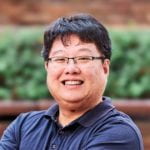EVENT, 3 Feb: Education, Lifelong Learning, and Preparing for the Future of Learning
January 10, 2023
This event spotlights NUS Faculty of Arts and Social Sciences (FASS) academics’ research and insights on education, lifelong learning, and the future of learning in the Singapore context. The panelists will speak about projects related to teaching and learning, youth and adult education in Singapore, discuss how what we learn and the way we learn is changing, and the ways in which educational policy could be affected.
Date & Time: 2:00-5:00pm, Friday, Feb 3, 2023
Venue: NUS AS7 RD Seminar Room (6-42) & Zoom
Venue Address: NUS AS7 Shaw Foundation Building, RD Seminar Room (Level 6, Room 42), 5 Arts Link, 117570
Directions: To get to the Research Division Seminar Room, go to Level 6 of the AS7 Shaw Foundation Building and turn right after exiting the lift, going around the corridor past the washrooms. Turn left and you will see the Research Division Seminar Room directly ahead.
Registration
In-person: https://bit.ly/Education_LifelongLearning_Future_of_Learning
Zoom: https://bit.ly/3Qc6k66
Programme
| 2:00 PM | Registration |
| 2:30 PM | Welcome Remarks by FASS Vice Dean of Research, Professor Elaine HO Lynn-Ee |
| 2:35 PM | Introduction of Panellists by Chair, Li Neng LEE (NUS Department of Psychology) |
| 2:40 PM | ‘Regulatory Focus and SSG Career Development Course Use: A Brief Online Intervention’ by Associate Professor Lile JIA (NUS Department of Psychology) |
| 3:00 PM | ‘The Science of Effective Learning: Building a Toolbox for Successful Education and Training Across the Lifespan’ by Assistant Professor Steven C. PAN (NUS Department of Psychology) |
| 3:20 PM | ‘What are Children Learning about English and Mandarin in Singapore?’ by Associate Professor Rebecca Lurie STARR (NUS Department of English, Linguistics, and Theatre Studies) |
| 3:40 PM | Q & A, Moderated by Chair |
| 4:10 PM | Closing Remarks by FASS Assistant Dean of Research, Associate Professor Qiushi FENG |
| 4:15 PM | Refreshments & Networking with Participants |
| 5:00 PM | End of Event |
Presentation Details
|
About the Presenter
|
Selected Projects & Publications
|
| Regulatory Focus and SSG Career Development Course Use: A Brief Online Intervention | 
Lile JIA is an Associate Professor at the NUS Department of Psychology. A social psychologist, his primary research interests lie in goal pursuit and self-regulation. He founded the Situated Goal Pursuit (SPUR) lab, which examines how the various aspects of the goal pursuit process are dynamically shaped by the relevant context. His research can be organized into four distinct but interconnected themes: intrapersonal goal striving, interpersonal goal striving, goal pursuit and society, and social-cognitive processes. The four themes reflect his long-standing interest in basic research on social cognitive processes as well as his more recent commitment to conducting research with immediate social and translational impact. Together, his lab applies motivation science to such diverse topics as academic achievement, striving for personal goals, national identification, intergroup conflict, support for government, creativity, and psychologically wise interventions. |
|
| The Science of Effective Learning: Building a Toolbox for Successful Education and Training Across the Lifespan
|
 Steven C. PAN is an Assistant Professor at the NUS Department of Psychology. He directs the Learning Sciences Laboratory, which investigates learning enhancement: training conditions that improve memory, develop skills, generate transfer, and attenuate forgetting. He researches conditions that improve the durability and flexibility of learning—that is, ways to help learners (a) master and retain knowledge and skills over long periods and (b) apply learning successfully in novel contexts. He employs a multi-faceted approach that includes laboratory and online experiments, classroom studies, surveys, and quantitative meta-analysis. Areas of focus include prequestioning (making guesses about information that one has yet to learn), retrieval practice (practicing recall of studied information), interleaving (mixing the study or practice of different concepts or skills), and educational technologies (e.g., online learning tools). Overall, this program of research is helping to build a “toolbox” of evidence-based learning techniques and is revealing insights into human learning and memory processes. Steven C. PAN is an Assistant Professor at the NUS Department of Psychology. He directs the Learning Sciences Laboratory, which investigates learning enhancement: training conditions that improve memory, develop skills, generate transfer, and attenuate forgetting. He researches conditions that improve the durability and flexibility of learning—that is, ways to help learners (a) master and retain knowledge and skills over long periods and (b) apply learning successfully in novel contexts. He employs a multi-faceted approach that includes laboratory and online experiments, classroom studies, surveys, and quantitative meta-analysis. Areas of focus include prequestioning (making guesses about information that one has yet to learn), retrieval practice (practicing recall of studied information), interleaving (mixing the study or practice of different concepts or skills), and educational technologies (e.g., online learning tools). Overall, this program of research is helping to build a “toolbox” of evidence-based learning techniques and is revealing insights into human learning and memory processes. |
|
| What are Children Learning about English and Mandarin in Singapore?
|
 Rebecca Lurie STARR is an Associate Professor at the NUS Department of English, Linguistics, and Theatre Studies. She specializes in language variation, change, and acquisition in multilingual contexts, the sociophonetic construction of style, and discourse in media. She received her PhD from Stanford in Linguistics with a designation in Cognitive Science in 2012. Prior to moving to Singapore in 2013, she served as an A.W. Mellon Postdoctoral Fellow at Carnegie Mellon University. Her research interests include language variation and change in English, Mandarin, Cantonese, Japanese, Korean, and Irish Gaelic; acquisition of variation and sociolinguistic knowledge among children in multilingual settings; sociolinguistic variation and teacher speech; sociophonetic construction of feminine styles; and language in the media. Rebecca Lurie STARR is an Associate Professor at the NUS Department of English, Linguistics, and Theatre Studies. She specializes in language variation, change, and acquisition in multilingual contexts, the sociophonetic construction of style, and discourse in media. She received her PhD from Stanford in Linguistics with a designation in Cognitive Science in 2012. Prior to moving to Singapore in 2013, she served as an A.W. Mellon Postdoctoral Fellow at Carnegie Mellon University. Her research interests include language variation and change in English, Mandarin, Cantonese, Japanese, Korean, and Irish Gaelic; acquisition of variation and sociolinguistic knowledge among children in multilingual settings; sociolinguistic variation and teacher speech; sociophonetic construction of feminine styles; and language in the media. |
|
Chair
 Li Neng LEE is a Senior Lecturer at the NUS Department of Psychology. A social and developmental psychologist, his research interests are primarily in the area of Education, Positive Psychology, and Religion, and address the following questions: 1) How do we optimise learning and teaching? 2) What role does technology play in it? 3) How do we cultivate creativity, curiosity and critical thinking? 4) What allows individuals to thrive in educational settings? 5) How can we develop students who are able to solve complex real-life questions through trans-disciplinary work?
Li Neng LEE is a Senior Lecturer at the NUS Department of Psychology. A social and developmental psychologist, his research interests are primarily in the area of Education, Positive Psychology, and Religion, and address the following questions: 1) How do we optimise learning and teaching? 2) What role does technology play in it? 3) How do we cultivate creativity, curiosity and critical thinking? 4) What allows individuals to thrive in educational settings? 5) How can we develop students who are able to solve complex real-life questions through trans-disciplinary work?
Welcome Remarks
Elaine Lynn-Ee HO is Professor at the Department of Geography and Senior Research Fellow at the Asia Research Institute (ARI), National University of Singapore. She is currently Vice-Dean of the FASS Research Division. Her research focuses on two domains: first, transnational ageing and care in the Asia-Pacific; and second, diaspora engagement and diplomacy. Both topics address her overarching interest in citizenship geographies. She is author of Citizens in Motion: Emigration, Immigration and Re-migration Across China’s Borders (2019, Stanford University Press).
Closing Remarks
Qiushi FENG received his doctoral degree from Duke University and is currently an Associate Professor in the Department of Sociology and Anthropology, National University of Singapore (NUS) and the Assistant Dean of Research at the NUS Faculty of Arts and Social Sciences. He is Deputy Head of the Department of Sociology and Anthropology, and Deputy Director of the Centre for Family and Population Research (CFPR) in NUS. He is also Vice President of the Population Association of Singapore (PAS). His research fields are aging and health, population studies, and economic sociology. He is the Associate Editor of Asian Population Studies, Deputy Editor of International Journal of Population Studies, and also serves on the editorial boards of a few prestigious international journals and book series. His research has been supported by the United Nations Population Fund (UNPF), the Singapore Ministry of Education (MOE), and the National Medical Research Council (NMRC). He is currently leading a MOE Tier-2 project, Lifelong Education for Aging Productively (LEAP) in Singapore, and is the PI in charge of social determinants of health for SG70, a multidisciplinary project on aging launched by NUS Yong Loo Lin School of Medicine.


